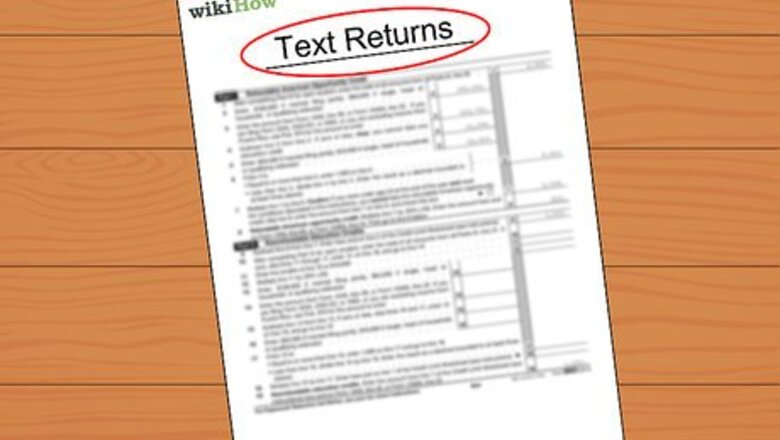
views
Establishing Your Ability to Pay
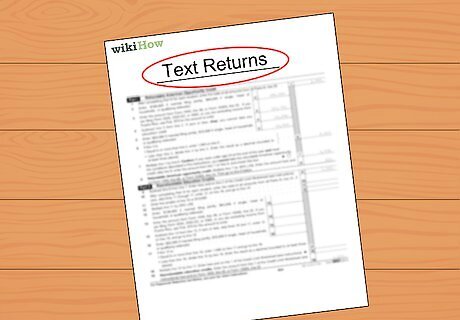
Provide tax returns. If you cannot produce pay stubs, your lender may ask for copies of tax returns. Be prepared to produce tax returns for at least the past two years. Since your tax returns report all of your taxable income, they may serve as an adequate proof of income for your loan. Also, your tax returns for the past two years can provide a reasonable estimate for how much you will make in the current year. Finally, lenders trust that information provided on a tax return is accurate. Lenders look at gross income, not taxable income, so don't worry if your deductions cause your income to appear lower. The inability to produce tax returns makes you seem like a higher credit risk.
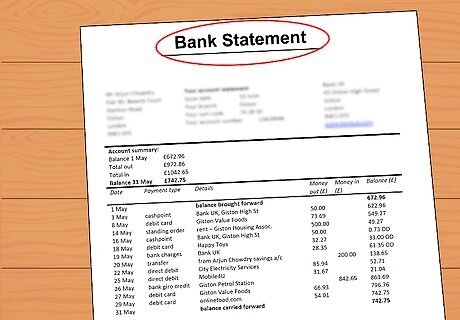
Produce bank statements. Another method of proving your income is to provide bank statements. If your income varies from month to month because of freelance work, a lender may ask for several months' worth of statements. These will provide your lender with records of all of your deposits, allowing them to see that you do have income. However, bank statements do not give information about how you earned your income. If you have bank statements but cannot also provide tax returns, expect to pay a higher interest rate.
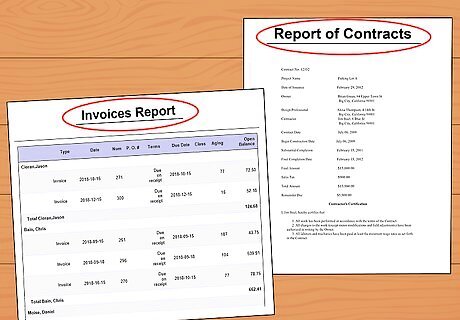
Generate a report of invoices and contracts. List all of the invoices you have made for at least the past 12 months. Also, provide details about work for which you have been contracted but haven't invoiced yet. This information will provide proof of past income and allow a lender to predict future income. Invoices and contracts provide more detail about your sources of income. However, don't expect lenders to rely on these alone. Invoices and contracts should only be used as a supplement to tax returns and bank statements.
Proving Your Residence
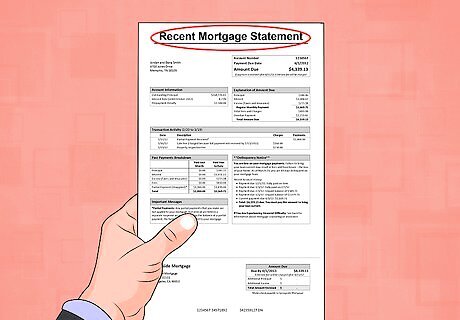
Bring your most recent mortgage statement. If you own your home, a mortgage statement may be used to prove residence. Bring the most recent statement. This will demonstrate that you still reside at this address. The mortgage statement must have your name on it. If the mortgage is not in your name, then the statement will not have your name on it.
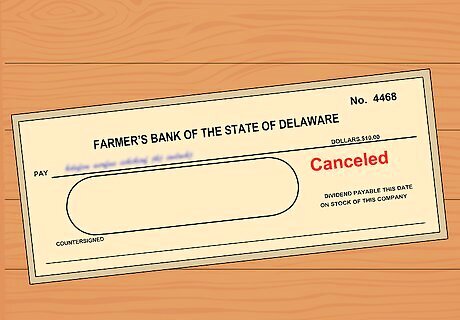
Provide cancelled rent checks. If you rent, a cancelled rent check can prove where you live. Your landlord must sign a receipt verifying that you live at this address. If you live with relatives and pay rent to them, ask them to sign a statement that you live with them at this address. In this case, you might also be asked to produce mail, such as a bill, addressed to you at this address.
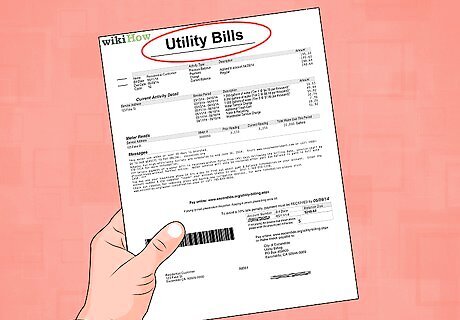
Produce utility bills. Lenders will usually accept a utility bill in your name as proof of your address. Be prepared to provide more than one utility bill. For example, you can provide an electric bill, water bill, sewer bill or phone bill if you have a land line. Be sure that the utility bill has your name on it. If all of your bills are in someone else's name, such as a spouse or roommate, you will need to provide other forms of business mail in your name at that address.
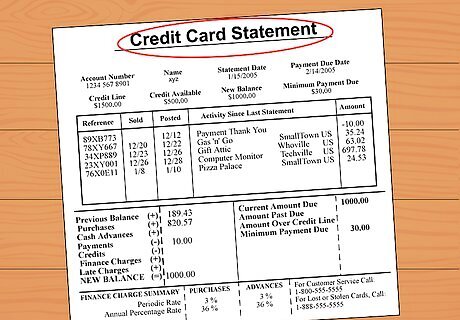
Show other business mail. Other business mail includes bank statements, credit statements or other household bills besides utilities. The mail must be addressed to you at your address. Don't use junk mail. Since junk mail is not specifically addressed to you, it would not suffice as proof of residence.
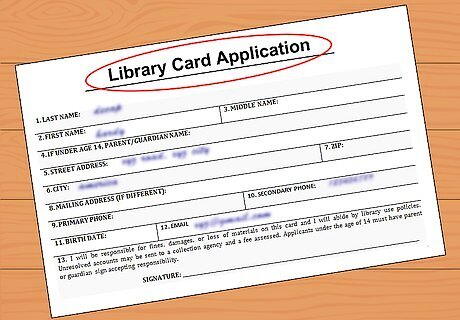
Present a library card application. A library card application requires proof of residence. So, it can also be used to verify that you reside at your stated address. Some lenders may accept this as proof of your address. However, be prepared to bring additional documents, such as bills or other business mail.
Demonstrating Credit Worthiness
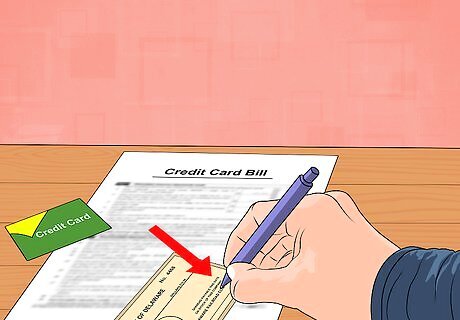
Repair bad credit. Lenders will evaluate your credit score during the loan approval process. If you do not have a proof of income, prepare several months ahead of time to improve your credit score. This will increase the likelihood of getting approved for an auto loan. Pay all of your bills on time. Pay off as much debt as possible. Get a short-term loan for a small amount of money from your bank or credit union to establish good credit. Instead of taking the cash, put the money in an interest-bearing account. Pay off the loan from the account where you parked the money. Get a secured credit card. Ask to be an authorized user on another person's credit card account, such as your spouse or a parent. Open a store credit card. Dispute inaccurate or negative information on your credit report. Create a budget and work out a repayment plan to your creditors. You can find legitimate credit counseling programs at many universities, military bases, credit unions, housing authorities and branches of the U.S. Cooperative Extension Service. Do not work with companies that promise to erase your bad credit or create a new credit identity. These are likely a scam. Avoid subprime loans. These are often marketing to people with less-than-stellar credit, but the terms are usually unfavorable. Auto loans are easier to get than mortgages because they involve less money over a shorter period of time. Shop around, because you may qualify for a better loan than you think.
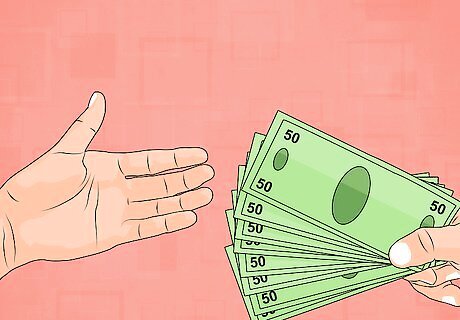
Put down a healthy down payment. Many car buyers put down approximately 10 percent of the car's value as a down payment. However, without proof of income, you may be required to make a bigger down payment. Save up as much cash as possible ahead of time to use as your down payment. A bigger down payment not only reduces the amount you have to finance, but it also reassures lenders that you won't be “upside down” on your loan. Lenders don't want this to happen, so they're more likely to approve you for a loan if you have a large down payment. If you are trading in your old car, this can be applied towards your down payment. Provide documentation about the source of your down payment.

Get a cosigner. If someone is willing to cosign your auto loan, your lender may be more willing to approve it. A cosigner guarantees that you will make all of your payments in full and on time. Also, if you fail to pay, the cosigner agrees to make the payments for you. Your cosigner will need to have a good or excellent credit score. Also, the cosigner will need to provide proof of income and demonstrate stability in their residence and employment. Your cosigner is at risk for payment, so a default can destroy relationship.
Choosing a Lender
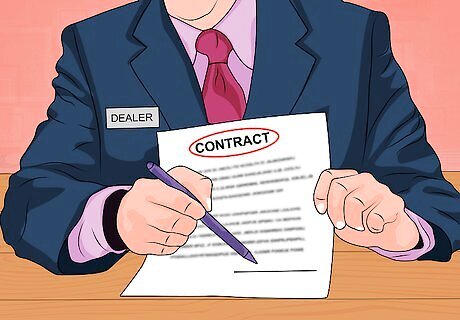
Be wary of dealer financing. Your dealer may try to convince you that you won't qualify for a bank loan because you don't have sufficient proof of income. Don't fall for this. The dealer may be misleading you in order to get you to work with their financing. Dealer financing often comes with higher interest rates, which can mean a bigger monthly payment. Or, they may stretch the loan out for 72 months or more in order to make the monthly payment lower. In this case, you could still be paying off the loan after you no longer own the car.
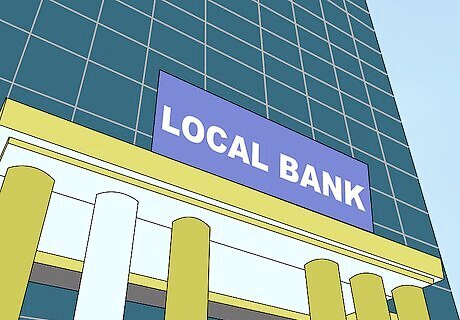
Seek out local banks and credit unions. If you are a member of a credit union, check with them first about getting an auto loan. Credit unions are member- and community-oriented. They offer a user-friendly loan process and competitive interest rates. If you already have a relationship with a local bank, visit a branch and meet with a someone in person. Since they already do business with you, they will be familiar with your financial history and be more willing to work with you.

Avoid predatory lenders. Predatory lenders employ unfair or fraudulent practices. If you cannot provide proof of income, these loans might seem attractive because they are easy to get. However, these loans come with very high interest rates and expensive fees and charges. It's not always simple to recognize a predatory loan. Be on the lookout for the following red flags. If you are encouraged to put false information on the loan, it's likely a predatory loan. If add-on packages come with the loan, such as insurance, theft deterrents or rust-proofing, don't take the loan. These packages don't add value and simply inflate the loan amount. Ads that promise you can get a loan even with bad credit. These loans come with exorbitantly high interest rates.

Thoroughly examine all dealer financing paperwork. If you do decide to go with dealer financing, never leave the dealership without a signed contract. Some dealers will allow you to take ownership of the car before the loan process is completed. Then, a few weeks later you get a phone call saying you didn't qualify for the loan and must accept a different loan with a higher interest rate. This is a scam. The dealer can adequately assess your credit worthiness and approve you for a loan on the spot. If they are not willing to complete the loan process with you, then go elsewhere.












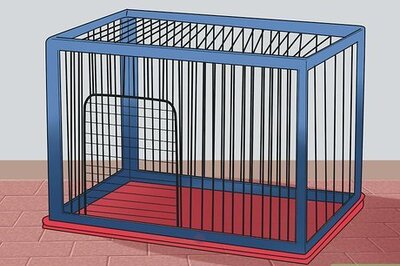







Comments
0 comment